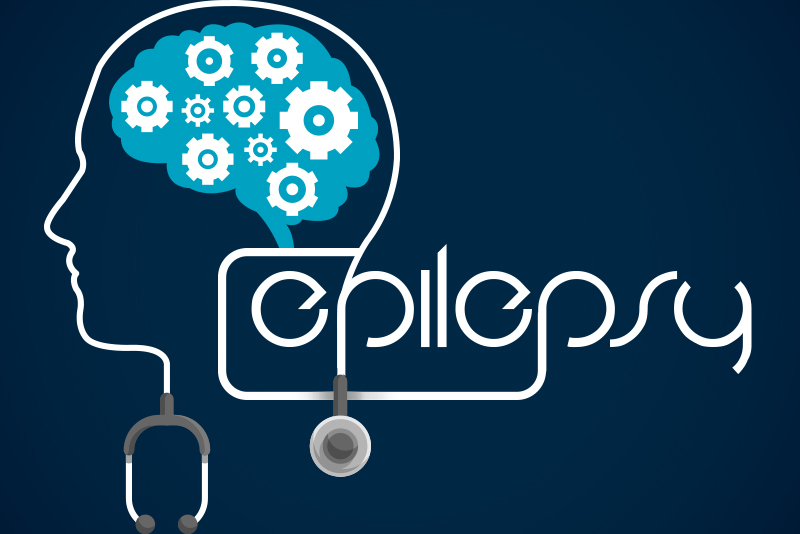Epilepsy is a common neurological condition where the brain’s electrical signals become disorganized, leading to sudden bursts of abnormal electrical activity and seizures. Epilepsy can affect people of all age groups and genders, significantly impacting quality of life. According to reports about 3.4 million people in the United States have epilepsy (2022 statistics). Of this number, 3 million are adults and 470,000 are children. There are different types of epilepsy. Accurate coding and documentation of neurology conditions is critical for medical billing and insurance reimbursement. Relying on the professional services of a neurology medical coding company with solid expertise in this field can help physicians ensure billing and coding efficiency.
Symptoms and Diagnosis
The exact cause of epilepsy is often unknown, but it may be influenced by genetic factors, as many individuals with epilepsy have a family history of the condition. In some cases, epilepsy can be attributed to brain damage caused by events such as stroke, brain tumors, severe head injuries, drug or alcohol abuse, brain infections, or lack of oxygen during birth.
Generally, epilepsies are classified on the basis of seizure type. Seizure categories are based on where they start in the brain, a patient’s level of awareness during a seizure and by presence or absence of muscle movements. There are two main categories of seizure groups -focal onset seizures and generalized onset seizures.
Recurring seizures are the prominent symptom of the condition. Symptoms can vary widely depending on the type of seizure. In certain instances, individuals may experience a loss of awareness during a seizure, while in other cases, they may exhibit a brief period of blank staring that lasts for a few seconds.
Other symptoms include –
- Changes in hearing, vision, taste or smell
- Problems talking or understanding
- Temporary confusion, slowed thinking, problems with talking and understanding
- Uncontrolled muscle movements, muscle jerking, loss of muscle tone
One seizure doesn’t mean that an individual has epilepsy. A diagnosis of epilepsy is typically made when an individual experiences at least two unprovoked seizures, occurring at least 24 hours apart.
Before making a diagnosis, a neurologist will perform a physical exam, previous medical history analysis, and review of symptoms. Blood tests, electroencephalography (EEG) and magnetic resonance imaging (MRI) will be performed to measure the electrical activity in the brain and detect tumors, infections or blood vessel abnormalities. Treatments to control epilepsy include anti-seizure medications, special diets, and surgery. While some individuals may require lifelong treatment for epilepsy, there are cases where seizures eventually cease without the need for ongoing treatment. The duration and necessity of treatment can vary from person to person.
Streamline your neurology medical billing and maximize your revenue potential with our professional medical billing services.
Billing and Coding for Epilepsy
Assigning the correct ICD-10 and CPT codes and following documentation guidelines are essential for accurately documenting the management and treatment of this neurological disorder.
Diagnosis Codes
The appropriate ICD-10 codes should be used to specify the type of epilepsy, seizure types, and any associated conditions or factors.
The ICD-10 codes used to represent a diagnosis of epilepsy –
- G40.0 – Localization-related (focal)(partial) idiopathic epilepsy and epileptic syndromes with seizures of localized onset
- G40.1 – Localization-related (focal)(partial) symptomatic epilepsy and epileptic syndromes with simple partial seizures
- G40.2 – Localization-related (focal)(partial) symptomatic epilepsy and epileptic syndromes with complex partial seizures
- G40.3 – Generalized idiopathic epilepsy and epileptic syndromes
- G40.4 – Other generalized epilepsy and epileptic syndromes
- G40.5 – Special epileptic syndromes
- G40.6 – Grand mal seizures, unspecified
- G40.7 – Petit mal, unspecified
- G40.8 – Other epilepsy
- G40.9 – Epilepsy, unspecified
It is crucial to select the most specific code that accurately represents the type of epilepsy and its underlying cause. Complete and precise coding ensures appropriate reimbursement and helps capture the complexity of the patient’s condition.
CPT Codes for Epilepsy Management
Proper procedure coding is essential for correct billing of the medical interventions and services provided to patients with epilepsy. Here are some commonly used CPT codes related to epilepsy management –
- 95953 – Video/electroencephalography (EEG) monitoring; prolonged monitoring, up to 48 hours
- 95957 – Video/electroencephalography (EEG) monitoring; recording only, without interpretation and report, minimum of 8 channels
- 95958 – Video/electroencephalography (EEG) monitoring; recording only, without interpretation and report, greater than 8 channels
- 95959 – Video/electroencephalography (EEG) monitoring; interpretation and report
- 95812 – Electroencephalogram (EEG), extended monitoring; 41-60 minutes
- 95813 – Electroencephalogram (EEG), monitoring; greater than 1 hour
- 95816 – Electroencephalogram (EEG), including recording awake and asleep
- 95819 – Electroencephalogram (EEG), recording in coma or sleep only
- 95950 – Continuous intraoperative neurophysiology monitoring, from outside the operating room (remote or nearby), per hour
Accurate and detailed documentation is crucial for supporting the selected diagnosis and procedure codes. The documentation should include information about the patient’s epilepsy diagnosis, seizure types, frequency, any associated factors, and comorbidities. It should also include the medical necessity of any procedures or interventions performed, along with the time spent and complexity involved. For accurate documentation and coding, it is essential for practices to stay updated with the latest coding guidelines, revisions, and updates from authoritative sources such as the Centers for Medicare and Medicaid Services (CMS) and professional coding organizations.
Neurology medical coding can be a complex and challenging process due to the specialized nature of neurological conditions and procedures. In addition to the broad range of neurology conditions, other factors that add to the challenges of billing services for this specialty include extensive code sets, procedure-specific coding, diagnosis coding complexity, payer-specific insurance coverage and reimbursement policies, and compliance and documentation requirements. That’s why many neurology practices opt to rely on professional medical billing services to navigate the intricacies of neurology coding guidelines and regulations, report their services correctly, and optimize reimbursement,
Partner with OSI for your medical billing and coding needs!
Schedule a free consultation with our experts – call (800) 670 2809






